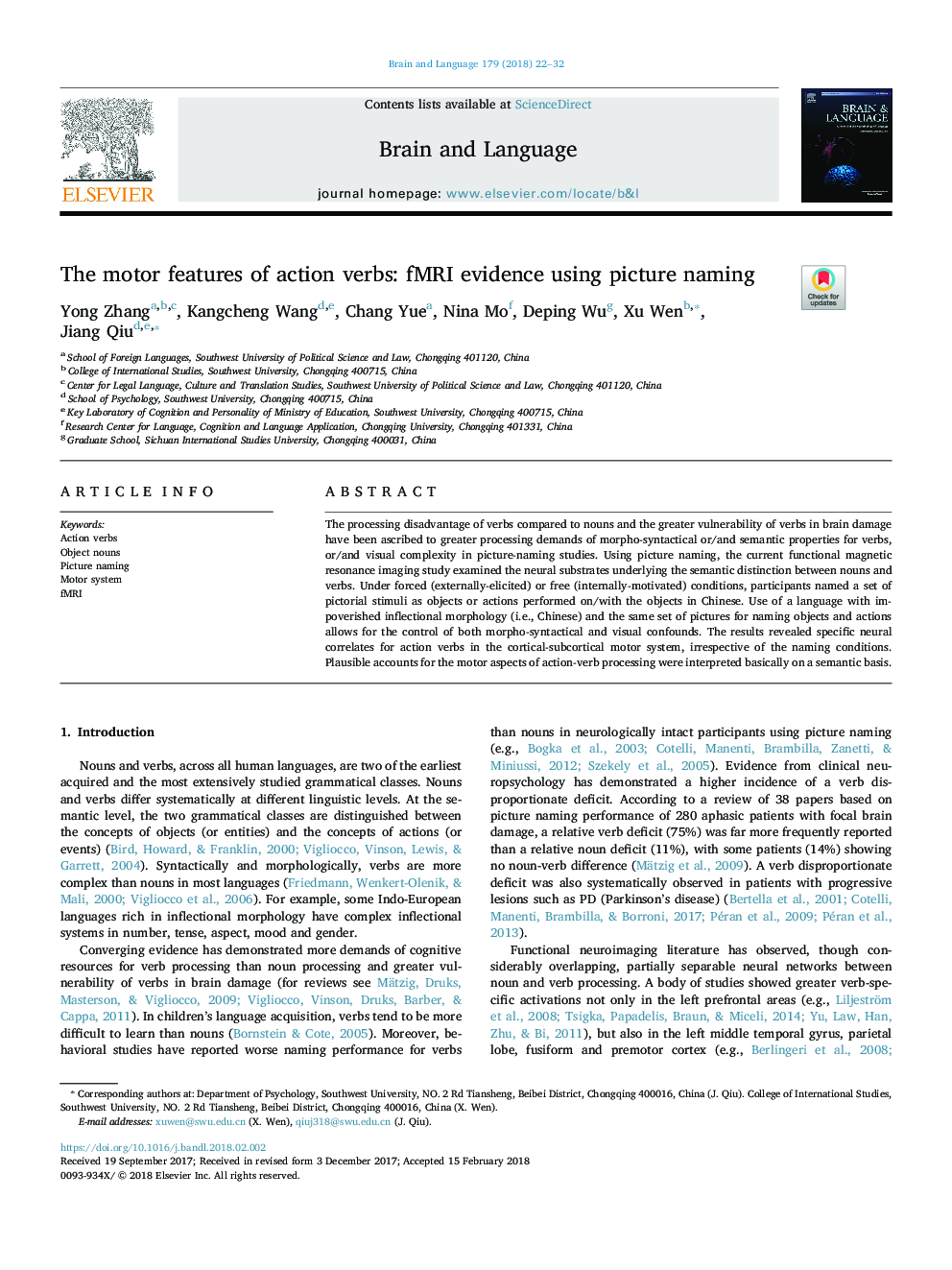| Article ID | Journal | Published Year | Pages | File Type |
|---|---|---|---|---|
| 7283558 | Brain and Language | 2018 | 11 Pages |
Abstract
The processing disadvantage of verbs compared to nouns and the greater vulnerability of verbs in brain damage have been ascribed to greater processing demands of morpho-syntactical or/and semantic properties for verbs, or/and visual complexity in picture-naming studies. Using picture naming, the current functional magnetic resonance imaging study examined the neural substrates underlying the semantic distinction between nouns and verbs. Under forced (externally-elicited) or free (internally-motivated) conditions, participants named a set of pictorial stimuli as objects or actions performed on/with the objects in Chinese. Use of a language with impoverished inflectional morphology (i.e., Chinese) and the same set of pictures for naming objects and actions allows for the control of both morpho-syntactical and visual confounds. The results revealed specific neural correlates for action verbs in the cortical-subcortical motor system, irrespective of the naming conditions. Plausible accounts for the motor aspects of action-verb processing were interpreted basically on a semantic basis.
Related Topics
Life Sciences
Neuroscience
Biological Psychiatry
Authors
Yong Zhang, Kangcheng Wang, Chang Yue, Nina Mo, Deping Wu, Xu Wen, Jiang Qiu,
